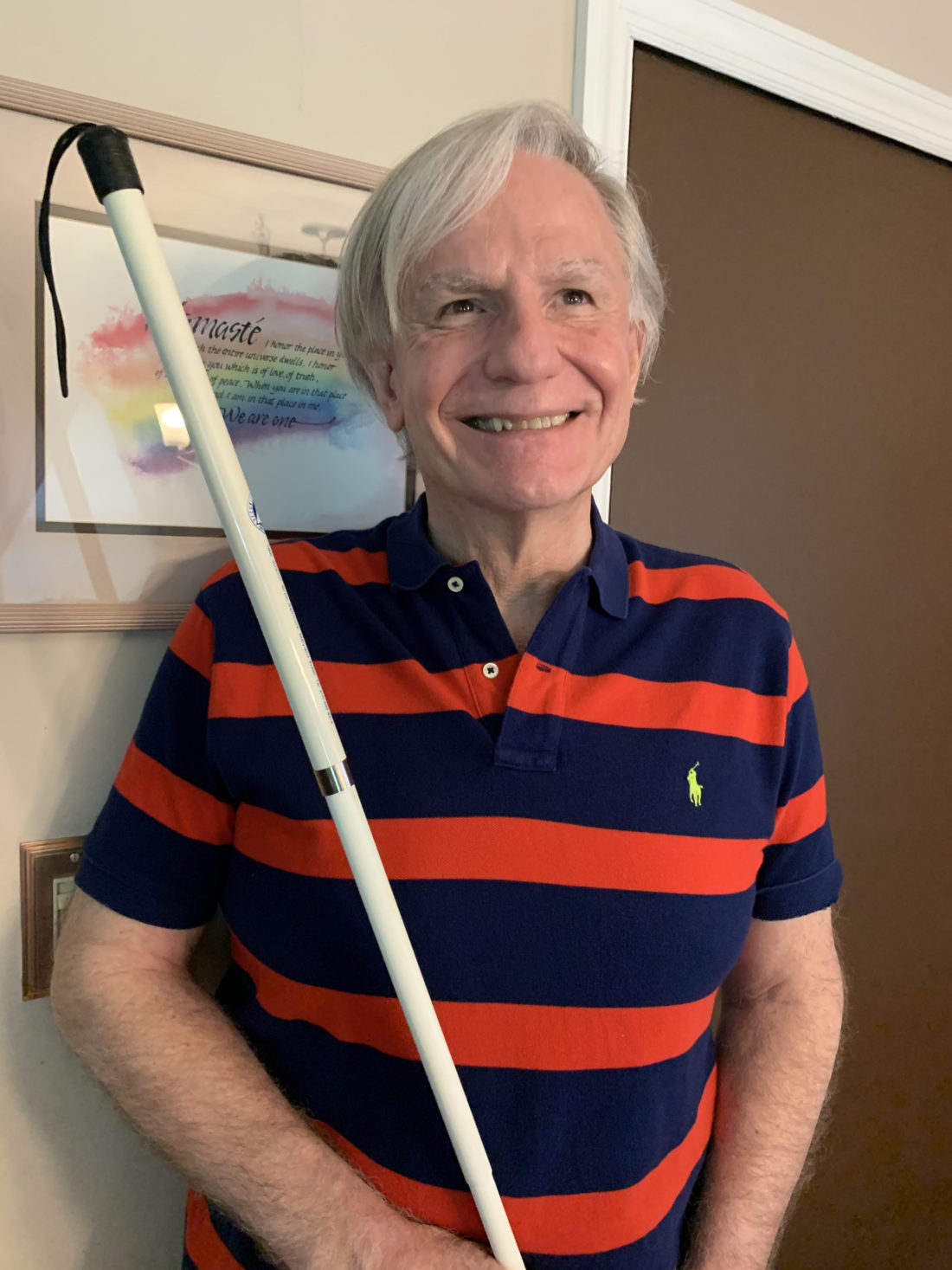Over the last 50 years, the world has gradually disappeared for Gary Ray. Diagnosed with macular degeneration in the late 1960s, he was declared legally blind in 1980 when his vision fell to 20/200. For the last four years, Ray says, “I’ve been totally blind.”
As his sight deteriorated, Ray has also been in long-term recovery for substance abuse; he will celebrate 37 years in September. COVID-19, he says, has presented new challenges on both fronts.
Since March, his regular in-person support groups have shifted online. The new format, says Ray, has required some getting used to. “You have to work on it psychologically in order to make sure you still get what you need out of it,” he explains. “It takes some mental manipulation.”
Initial access to these sessions also proved burdensome. “Using Zoom on either a smartphone or a computer was extremely difficult because there is a layer of keystrokes that one has to remember,” he explains.
Fortunately, a low-tech solution emerged. Group members can now dial into meetings using their landlines. “Do you need me to explain to you what a home telephone is?” the septuagenarian jokes.
Ray laughs often when discussing his life. In general, comedy has served as a coping mechanism, particularly in moments when sighted people react poorly to his blindness. In such instances, he says, the strategy also helps him alleviate his own frustrations.
“I never asked to be blind, and every now and then that anger still comes out,” he says. “I try to deal with it through humor.”
He also makes it a point to appreciate the good things in his life, including his wife, Linda Ray. “I’m very lucky,” he says, noting that Linda, who is sighted, doubles as his guide when the couple are out. “I hold onto her right elbow,” he explains.
Still, Ray understands that many in the local blind community, as well as those in recovery, do not have a built-in support system. “Isolation is the worst enemy that I have seen for people with disabilities or with addiction issues,” he reveals. “We say in our [recovery] program, ‘An addict alone is in extremely bad company.’”
Finding a network, he stresses, is crucial. “There’s that therapeutic value of one person with a problem talking to another person with the same problem and figuring out how to deal with the particular issue,” Ray explains. “It also helps you know you’re not alone.”
To learn more about available local services and organizations for the blind, visit avl.mx/7g2. For more on recovery options in the area, visit avl.mx/7g5.
This article is part of COVID Conversations, a series of short features based on interviews with members of our community during the coronavirus pandemic in Western North Carolina. If you or someone you know has a unique story you think should be featured in a future issue of Xpress, please let us know at news@mountainx.com.




Before you comment
The comments section is here to provide a platform for civil dialogue on the issues we face together as a local community. Xpress is committed to offering this platform for all voices, but when the tone of the discussion gets nasty or strays off topic, we believe many people choose not to participate. Xpress editors are determined to moderate comments to ensure a constructive interchange is maintained. All comments judged not to be in keeping with the spirit of civil discourse will be removed and repeat violators will be banned. See here for our terms of service. Thank you for being part of this effort to promote respectful discussion.